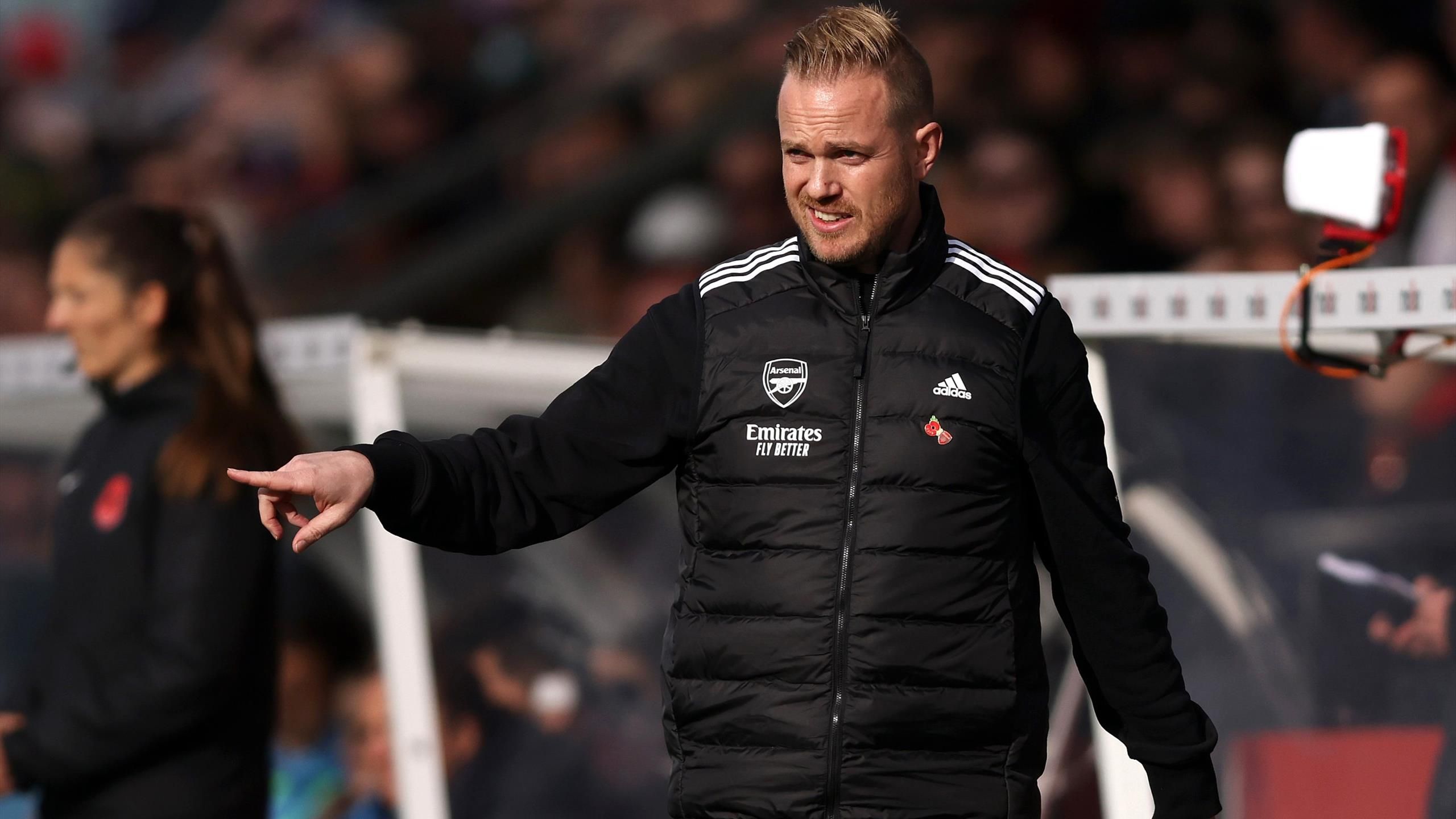
Arsenal Manager Urges Shift in Equal Pay Debate in Football
Jonas Eidevall, the manager of Arsenal, has expressed the need for a change in the discussion on wages in women’s football, highlighting the significance of broadening the focus beyond the elite level of the sport. This statement comes as reports suggest that Emma Hayes is poised to receive a salary equivalent to that of Gregg Berhalter, the manager of the men’s national team, making her the highest-earning female manager globally.
In light of the wage gap, Gareth Southgate, the England manager, has stressed the importance of fair remuneration for individuals occupying similar positions. He emphasized the role of economic factors, illustrating this by discussing the issue of gender-based salary disparities among CEOs in a company. Additionally, Southgate recognized that in football, the income generated by a team influences the criteria for determining pay, resulting in higher salaries for Premier League managers and players compared to those in lower leagues.
Southgate also acknowledged the triumph and economic influence of the US women’s team, proposing the possibility of bridging the gap between the earnings of men’s and women’s teams. Nevertheless, he raised the concern of whether this concept can be applied to clubs or other national associations. In anticipation of Arsenal’s upcoming Women’s Super League game against Brighton, Eidevall reiterated Southgate’s remarks, but emphasized the necessity of considering the entire women’s football structure when discussing salaries. He acknowledged the Professional Footballers’ Association (PFA) for shedding light on the challenges faced by players in the WSL, underlining that numerous players from other teams besides Arsenal continue to face difficulties in solely relying on their league earnings to sustain themselves. Eidevall stressed the significance of tackling this matter to foster a more robust league. Eidevall emphasized the advancements made in women’s football, such as the doubled prize fund in the FA Cup. However, he highlighted the substantial disparity that still exists between women’s and men’s competitions. He raised concerns about the adequacy of the increased prize money and the need for equal distribution in the future. Eidevall questioned whether the FA prioritizes equality as a guiding principle or if they are solely reliant on market forces to determine the outcome. Ultimately, Eidevall believes that addressing pay discrepancies in women’s football should not be limited to the elite level of the sport.
